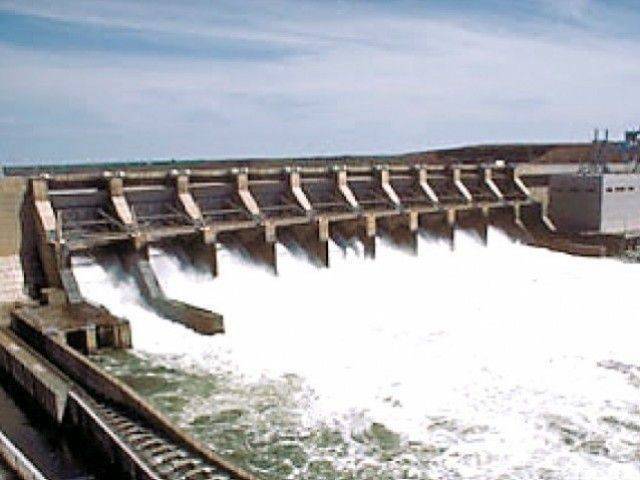
However, four years have gone since the current government came to power, the country is still facing a shortfall of 5,000 megawatts, leading to average power outages for 10 hours a day.
Speaking in a meeting of the National Assembly Standing Committee on Water and Power, chaired by Arshad Khan Leghari, on Friday, Additional Secretary Ministry of Water and Power Omer Rasul revealed that at present the gap between power supply and demand stood at 5,000MW and it would be a success if the shortfall was maintained in the summer season this year.
Average demand for electricity stood at 17,400MW in April compared to generation of just 11,900MW, leaving a gap of more than 5,000MW. However, "in May, 1,200MW will be added to the national grid," he said.
'8000MW electricity to be added to the national grid by next year'
"Consumers in urban areas will experience four hours of load-shedding while those in rural regions will face six hours of outages," he said.
He expected the electricity demand to surge to 24,000MW in the summer season this year compared to 23,000MW last year.
In the previous year, the country produced 17,000MW of electricity, but in the current season, it would increase to 18,000MW.
However, the secretary announced that there would not be zero load-shedding in the month of Ramazan, which would begin at the end of May, but the government would keep outages at a lower level compared to last year.
He disclosed that the government would suspend electricity supply to the industries for one shift and double supplies to the domestic consumers in Ramazan. However, domestic consumers will not be exempt from outages in the month.
Advent of summer adds to misery of Hyderabad residents
The secretary pointed out that thermal power projects of 4,000MW capacity had been abandoned by China under the economic corridor project and Pakistan government was now trying to divert that investment to hydroelectric power projects.
Water and Power Development Authority (Wapda) Chairman Muzammil Hussain claimed that international donors were not ready to invest in hydroelectric power projects and they were exploiting Pakistan in that regard.
He said the investment earmarked for the projects that were not executed under the China-Pakistan Economic Corridor (CPEC) would be poured into hydroelectric power projects.
He revealed that Prime Minister Nawaz Sharif would visit China next month and request his Chinese counterpart to make the gigantic Diamer-Bhasha Dam and power project part of the priority list of CPEC.
China will be asked to inject capital into power houses to be installed on the Diamer-Bhasha Dam whereas Pakistan government will invest in the building of storage dams. Work on the dam will start in December.
Power outages will end this year: CM
He argued that there were problems in the release of funds allocated under the Public Sector Development Programme (PSDP). "If 100% funds are allocated for power projects, we are able to receive only 13%," he said.
Committee member Yousuf Talpur complained that Sindh was enduring problems in receiving water for irrigating Kharif crops and requested for water supply from the Mangla Dam.
Fearing starvation in the province, he underlined the need for providing water for planting key Kharif crops.
Responding to the demand, the Indus River System Authority chairman said water inflows had increased to 140,000 cusecs and the regulator would start supplying water to Sindh in line with its demand from April 10.
"An increase of 5,000 cusecs has been made in the water share of Sindh, taking the volume from 40,000 cusecs to 45,000 cusecs," he said.


1732519298-0/BeFunky-collage-(85)1732519298-0-165x106.webp)
1732611352-0/lamar-(5)1732611352-0-165x106.webp)
1732610018-0/BeFunky-collage-(91)1732610018-0-165x106.webp)












COMMENTS (2)
Comments are moderated and generally will be posted if they are on-topic and not abusive.
For more information, please see our Comments FAQ